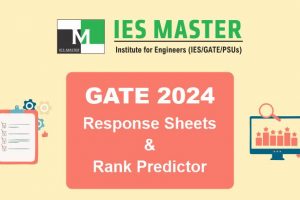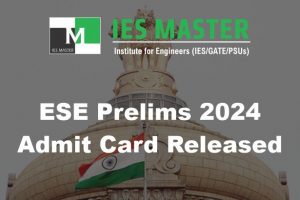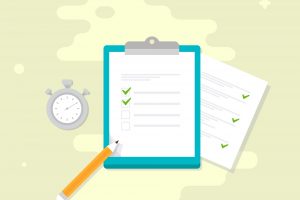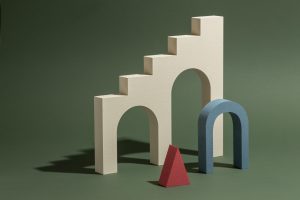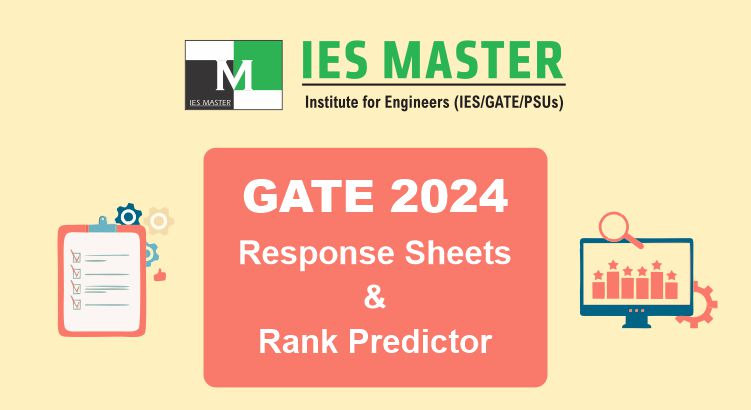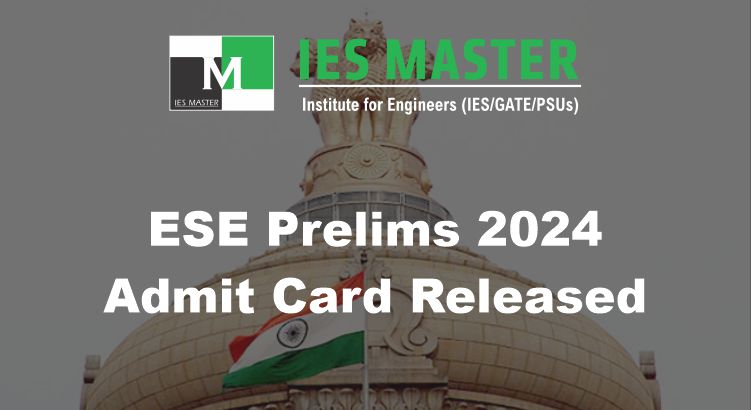Meet this footballer, who has a heart of gold, and an ambition of an engineer. Cool, calm and composed, he turned every challenge into an opportunity. This is one story of a rising star from Punjab University, Chandigarh, which you cannot afford to miss…
IES Master: It’s a huge success! Take us through the moment when you came to know about the result.
Japjit: When I got to see the result, first of all I broke down a little bit. Then I gathered myself, and called my mother, and then she broke down. She also took another 15 to 20 minutes to recover her composure. She was the first person, whom I informed.
IES Master: Tell us a little about your family.
Japjit: I live with my mother. My father expired three years ago. My mother is working for Punjab state government. My elder sister is married, and she is a doctor.
IES Master: What inspired you to prepare for Engineering Services Examination?
Japjit: I completed my Master’s in 2015, and then in the same year I joined Bharat Electronics Limited (BEL). After working for six to seven months in BEL, I always had the feeling that I have to clear this exam, but then I realised that I have the capability to clear this exam so I started preparing thoroughly for this exam. I also met some persons from BEL and some other organisations, and some friends who cleared this exam. As we are in touch with each, this inspired me to go for this exam.
IES Master: Take us through your B.Tech and M.Tech years.
Japjit: I did my B.Tech as well as M.Tech from Punjab University, Chandigarh.
I started my graduation in 2009, and completed it in 2013. In 2013, I had a placement offer in Mumbai in research field where I attended a six month’s training program. During the training program, I realised that I should go for various competitive exams. But preparing solely for examinations was not my kind of a thing. So I preferred to join the Master’s course in the same college from where I graduated. So side by side I started preparing for various exams. By the end of my M.Tech, I was able to get selected in BEL. I was also giving some other exams like Bank exams, and all, but I wanted to be in technical field so in 2015 I joined BEL.
IES Master: What was your preparation strategy when it comes to ESE?
Japjit: Actually I had a good technical knowledge because of which I cleared the BEL exam, but I always had a dream that I want to become an ESE officer. When I joined BEL, I thought it is really possible. So after joining BEL, I started preparing for Engineering Services, and I also got in touch with a few of my friends, some of whom had cleared ESE and some were preparing along with me. This gave me an inspiration to prepare for this examination.
IES Master: How did you plan your syllabus, and then how did you follow it?
Japjit: I started preparing before 2016, but at that time my preparation was not complete as I was not able to cover all the subjects. During my preparation, I was targeting ESE 2017, but there was a change in ESE 2017 exam syllabus. This was a big shock to all the students who were preparing for it. So we have to re-strategise our ways, our learning methods, and plan out how our old understanding of the subjects can help us in clearing the examination. So then in 2017, I started focusing on the new topics that were introduced in the ESE syllabus. But maybe that was not enough, so I was not able to reach the interview stage of ESE 2017. But I did not lose the spirit, and continued working on, and finally I was able to clear the examination this time.
IES Master: What were the biggest challenges you faced while working and preparing for ESE simultaneously?
Japjit: The biggest challenge during preparation, while working, is that you lose the luxury of choosing time for study as per convenience. In fact, you have to make sure that you are mentally prepared to utilise your time whenever you get that opportunity. Like my main point was that I divided some of the portions like these are the topics that I am going to cover in the evening, and some revision tips that I kept for working hours. Like I used to take my lunch from home rather than going anywhere outside to eat. I would take my lunch at my desk only within 5 to 10 minutes, and use those spare 20 minutes to revise the topics that I have studied a day before. So in this way, I was able to pace up my revision as well as my preparation side by side. I think that worked for me a lot.
IES Master: Take us through your Mains Paper-I and Paper-II.
Japjit: Talking about Mains Paper-I, basically I concentrated on the new subjects that were added when the pattern was changed. So, in Paper-I the main thing was Electrical Engineering that was added in the new pattern. So I gave some extra days for the preparation of this new topic because I thought that this would give me an edge over other competitors, and I would be able to get good marks. But it’s not necessary that your planning before the examination would go in the same way as you had thought in the real examination. There were very less number of questions from that topic, but I had strategised my studies in such a way that I covered all the topics.
In ESE 2017, my main problem was that I was not able to cover all the topics. So this time, I planned my studies smartly, and covered all the topics like EDC, Analog, etc. So in this manner I was able to handle the pressure of Paper-I, but I was a little bit not satisfied with my performance in Paper-I. So during the two hours break in between Paper-I and Paper-II, I motivated myself so that I can give my best in Paper-II.
The main thing in the Mains examination is that even though I had worked very hard, planned very hard, and I had wrote lots of exams before attempting the Mains examination, but still you are not able to match the time and the content pace. So I believe that in Paper-II, I was able to choose the questions correctly, and the answer-cum-question booklet type supports this thing. So I didn’t start from the first question. I started from the best question that I knew, and I tried to give as large page as I can, and I was able to attempt my Paper-II as per my expectations. So, that might have done the trick in the examination.
IES Master: How did IES Master Conventional Question Practice Program help you?
Japjit: Test series plays a major role in preparation as well as strategising and analysing your hard work so I joined IES Master Test Series, and I attempted all the exams within the stipulated time limits. I was able to give all my efforts in analysing what kind of performance I have made in that test. I compared my answers with the actual answer sheet that was provided to me, and I tried to give marks to myself as well as I saw the evaluation of the institute also. So those two were going hand in hand, and I was also modifying my preparation strategy with the number of tests I was attempting. So the test series was of great use in the preparation of Conventional examination.
IES Master: How effective was IES Master material for your preparation?
Japjit: IES Master material was very effective for me specifically for Prelims examination because the paper is very vast in Prelims. If you think that you can cover everything in Paper-I then you’ll lose ground in technical part. I also had one thing in my mind that technical part is the only thing that has more weightage for the Mains examination. So I relied on IES Master material for the Prelims examination so that I am not wasting time for the preparation of Paper-I of Prelims. So that’s how I was able to allocate my time effectively.
IES Master: Walk us through your interview experience at UPSC.
Japjit: My UPSC interview was on 8th of October, 2018, and if you see the schedule of all the interviews for ESE 2018 interview, you will see that the board members changed for only one day, and that was on the day on which I gave interview. It was a bit shocking for me because I had prepared for the interview keeping in mind other Chairperson sir. But this thing didn’t happen in the interview, and I was thoroughly cross questioned for every answer I gave, but I kept myself confident, and backed my answers, and also backed off from the parts which I didn’t know. So, I think that worked for me and I was able to handle the interview pressure.
IES Master: What were the questions like, and how did IES Master mock interviews help you there?
Japjit: As I come from a defence background, the Chairman Sir started the interview with asking questions about Indo-Pak wars. He talked about various products BEL is making and exporting, and then he asked member 1 to ask the questions. Member 1 was strictly looking for theory part of questions like why Hole mobility is lesser than electrons, and why Silicone is used in abundance. These questions I was able to answer very confidently because of my Mains preparation.
Then other member started asking questions about various cell towers. What types of antennas are used in ship communication? This part I was not very confident about, and this was the topic from where I was cross-questioned more. I gave answers to some extent, but I also admitted that I am not aware of each and every detail about this topic.
Then the last member asked me about various radars as I am working with BEL, and radar is the major segment in which BEL is working. So he asked me various questions about radars to check my in-depth knowledge about radars. But unfortunately I was not very confident and effective in answering the in-depth working of radars and its various applications. But still I gave the best reply which I was able to give at that moment.
IES Master: How did IES Master mock interview help you?
Japjit: I attended 2-3 mock interviews at IES Master, and that was a great learning opportunity as well as self-analysing opportunity for me. My first mock interview went for around 45 minutes at IES Master, in which 30 minutes I was in proper interview mode. During the first 15 minutes, the panel members gave very important and useful feedback. So, based on that experience, I was able to strategise my study and plan for further areas for the interview. That helped me a lot.
IES Master: There is a general perception that ESE is something exclusive for IITians and NITians. What you have to say on this?
Japjit: Actually initially I was also thinking the same thing that only IIT people are more eligible and more capable of clearing such examination. That’s why initially I didn’t go directly to prepare for this examination, but when I joined BEL, I got in touch with many people, who were from various other colleges also, and who scored very good marks as well as ranks. So that was a motivation and reminder for me that we can also do the same thing. This motivation drove me for the preparation of this examination.
IES Master: Tell us a bit about the environment at Punjab University.
Japjit: Punjab University, Chandigarh is a place where most of the students come to enjoy the environment, and all the hype is there because there are various departments, and the environment is very healthy. So, for initial first three years, we all guys are more into non-study things and we are into fun activities, which we expect from the college. But, from the fourth year, me and most of my friends started concentrating on our career. This is the time when various companies start visiting for campus placements. So, we utilise our college time for fun as well as our career orientation, and I was able to get a placement also during my time at the college itself.
IES Master: Tell us about your schooling.
Japjit: I have done my schooling till 10th from Golden Bells Public School in Mohali, and 11th and 12th, I have done from Bal Niketan Senior Secondary School in Chandigarh. Basically my 12th class schooling ran parallel with coaching for AIEEE in which I got 10,000 all-India rank, and state rank 204. With this ranking, I was easily able to get Civil as well as Electrical engineering in Punjab Engineering College. But I wanted to make my career in Electronics field so I opted for Punjab University to get Electronics and Communication stream.
IES Master: Tell us about your city Chandigarh.
Japjit: Chandigarh is very beautiful city, which has been designed by Le Corbusier. It is a planned city, one of the best places to live. People who come there don’t want to leave the city. I myself belong to this city, and now I am working here, and I miss Chandigarh a lot. Roaming around in Chandigarh is very fun because you are not bothered about traffic and all as all the major attractions are nearby and traffic is less. Environment-wise it is very clean city as there are many trees. The air in Chandigarh is good to breathe. So it is very healthy place to live also.
IES Master: What would be your message to future aspirants?
Japjit: To all the future aspirants, I would like to tell that there is no substitute for hard work, and if you don’t get success in the first time, you will definitely get it in the second time, but you don’t have to give up. I was not able to clear this exam in my attempt of 2017, but with the help of my various friends, I kept myself motivated while indulging in my hobbies. I love playing football, and I derive a lot of motivation from my role model i.e. Cristiano Ronaldo. All these things contributed to my final success in Engineering Services Examination 2018.
IES Master: What would be your preferences in Engineering Services?
Japjit: My first preference was Indian Telecommunication Services, and I hope I will get this department. I am looking forward to join this department.
IES Master: You have been an inspiration for many, and an excellent student here at IES Master. Thank you so much for sharing your success story with IES Master. God bless you!
Japjit: Thank you! Thanks a lot!

